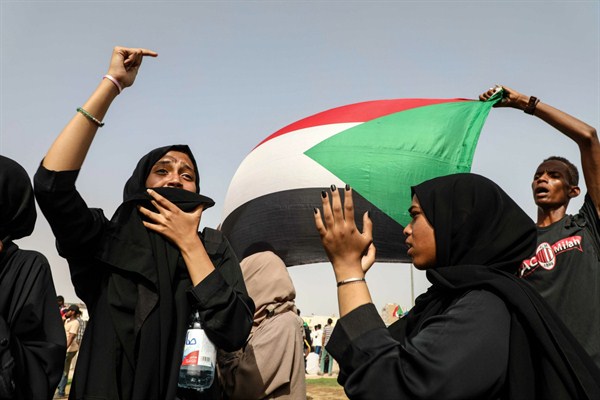Earlier this month, Sudan’s ruling military council and the opposition pro-democracy movement reached agreement on the broad outlines of a power-sharing deal. The document lays out a three-year roadmap toward free elections and permanent civilian rule. But the two sides have yet to agree on key details, and the opposition is continuing to demand accountability for a bloody crackdown by the military in June that left more than 100 people dead. In a sign of the process’ shakiness, a planned negotiating round was canceled this week in response to the killing of five schoolchildren by security forces during a peaceful rally on Monday.
For an update on the situation in Sudan and an analysis of where the country’s political transition might lead, WPR’s associate editor, Elliot Waldman, spoke with Alex de Waal, a research professor at The Fletcher School of Law and Diplomacy who has decades of experience working on humanitarian crises and peace and security issues in eastern Africa. He is also executive director of the World Peace Foundation.
If you like what you hear on Trend Lines and what you’ve read on WPR, you can sign up for our free newsletter to get our uncompromising analysis delivered straight to your inbox. The newsletter offers a free preview article every day of the week, plus three more complimentary articles in our weekly roundup every Friday. Sign up here. Then subscribe.
Listen:
Download: MP3
Subscribe: iTunes | RSS | Spotify
Relevant Articles on WPR:
Can Sudan’s Revolution Be Saved?
What Will the Massacre in Sudan Mean for Its Protest Movement?
After Bashir’s Ouster, the Hard Work of Sudan’s Revolution Has Only Begun
Trend Lines is produced and edited by Peter Dörrie, a freelance journalist and analyst focusing on security and resource politics in Africa. You can follow him on Twitter at @peterdoerrie.
To send feedback or questions, email us at podcast@worldpoliticsreview.com.

